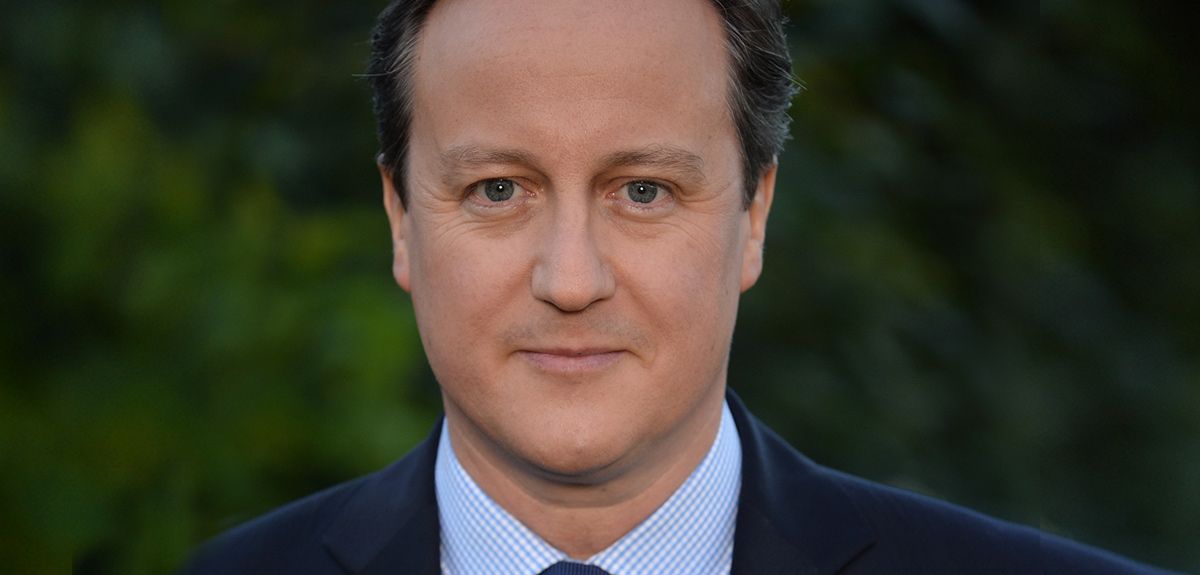
David Cameron is chair of new LSE-Oxford commission
Former UK Prime Minister David Cameron will chair a commission to guide policy on economic growth in fragile and conflict situations, with Oxford University’s Blavatnik School of Government and the LSE (London School of Economics).
The commission funded by the University of Oxford and LSE, through the support of the Higher Education Innovation Fund and the British Academy, will address fragile and conflict situations globally. It will examine where countries are failing, or are at risk of failing, with respect to political authority and legitimacy, and it will look at the provision of basic services such as health, education, security, and the rule of law.
Alongside Mr Cameron, who is taking on the unpaid role, the commission will be co-chaired by Dr Donald Kaberuka, former President of the African Development Bank and currently the Special Envoy of the African Union Peace Fund, and Dr.Adnan Khan, Research and Policy Director of the International Growth Centre. Professors Tim Besley (LSE) and Paul Collier (Oxford’s Blavatnik School of Government) will be the Commission’s academic directors. In addition, eight leading figures from the public and private sectors, and academia will serve as commissioners.
The commission will generate policy recommendations for governments, international donors, and NGOs to better support economic growth in countries facing fragility and conflict. It will focus on the underlying causes of state fragility and analyse an extensive evidence base to form its recommendations. Part of this evidence will be given in five evidence sessions with policymakers, business leaders, academics, NGOs, and other stakeholders who have experience in fragile and conflict situations. It will also aim to encourage new research by highlighting critical areas of knowledge that are missing.
As chair of the Commission on State Fragility, Growth and Development, Mr Cameron will build on his efforts to strengthen the UK’s leadership on international aid and development during his time as prime minister – including increasing UK aid spending to the UN target of 0.7% of gross national income, allocating 50% of the aid budget to fragile states and regions, and co-chairing the UN high-level panel that launched the Sustainable Development Goals (SDGs).
Mr Cameron said: ‘We can’t tackle global poverty or, indeed, improve our own security at home, unless we address the challenges caused by state fragility. How do we help support stronger economies and more effective governance in these countries? How do we help drive out corruption? How do we promote strong civil societies, the building blocks of democracy and the rule of law? The Commission aims to generate innovative ideas to help tackle state fragility and state failure, and I am delighted to be working with such a talented team of people.’
The commission aims to generate innovative ideas to help tackle state fragility and state failure
David Cameron, Chair of the LSE-Oxford Commission on State Fragility, Growth and Development
Dr Kaberuka said: ‘The ultimate aim of the SDGs is to leave no one behind. The global community’s ability to effectively address state capacity and legitimacy, and build resilience in many regions of the world where millions are trapped in fragile situations is fundamental. The fragility commission will seek to advance this critical agenda.’
Professor Collier added: ‘Global poverty reduction and the spread of democracy in the past few decades have not been enough to prevent the human tragedies stemming from fragility. We need distinctive policy solutions to address fragility, and those solutions need to be backed by robust evidence.’
In addition to the chairs and the academic directors, the following individuals will serve as commissioners: Robin Burgess, professor at the LSE; James Fearon, professor at Stanford University; Stephen Krasner, professor at Stanford University; Nourah Mehyar, CEO, Nafith Logistics; Minouche Shafik, Deputy Governor for Markets and Banking, Bank of England, who will be serving on the commission as of June 2017; Babatunde Soyoye, Co-founder and Managing Partner, Helios Investment Partners; Jennifer Widner, professor at Princeton University; and Ngaire Woods, Dean, Blavatnik School of Government.
The Commission will be launched under the auspices of the International Growth Centre in March 2017 and is due to run until June 2018.The International Growth Centre, based at the LSE and in partnership with the University of Oxford, aims to promote sustainable growth in developing countries, based on high quality research.
 New analysis of archaeological data reveals how agriculture and governance have shaped wealth inequality
New analysis of archaeological data reveals how agriculture and governance have shaped wealth inequality
 Cambridge victorious in Women's and Men's Boat Races 2025
Cambridge victorious in Women's and Men's Boat Races 2025
 Expert Comment: Ethical and legal challenges of uterus transplants in Mexico
Expert Comment: Ethical and legal challenges of uterus transplants in Mexico